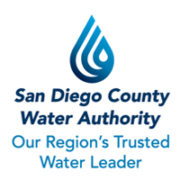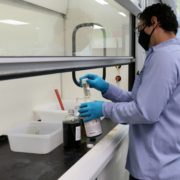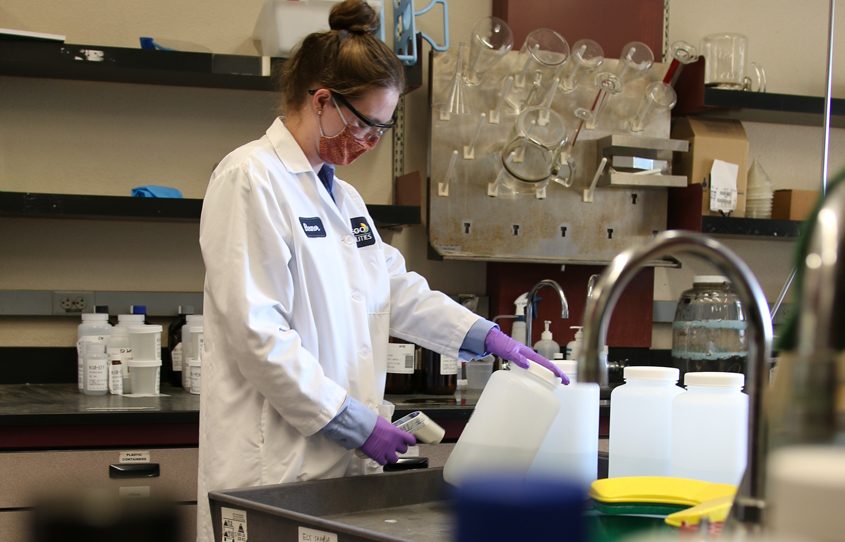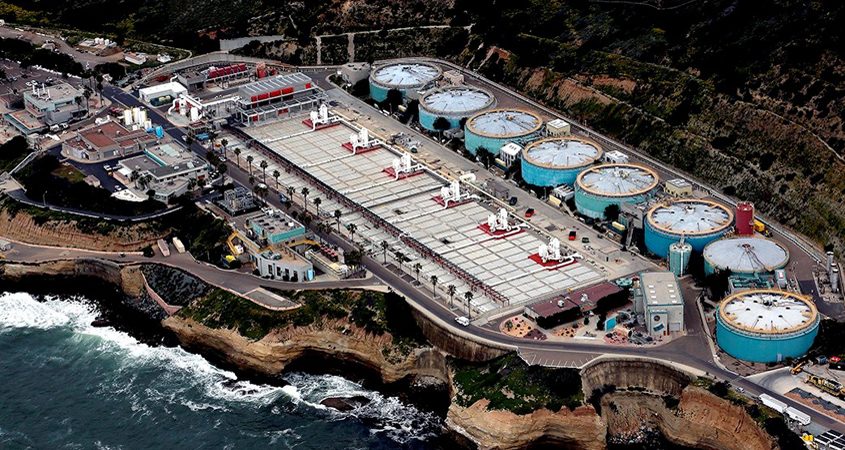Enhancing the financial literacy of employees at the San Diego County Water Authority was a primary objective when staff submitted a grant application for a portion of $1.4 million in funds available to public employers by the Mission Square Research Institute.
The Water Authority was among 24 public sector employees selected for a grant and received $24,884 to implement its three-year strategic plan to help employees improve their financial wellness.
While the Water Authority had an existing lunch and learn program which occasionally touched on financial wellness topics, the water agency did not have a comprehensive financial wellness program or a way of extending educational resources to its member agencies.
Financial wellness
The grant funds enabled the agency to contract with a nonprofit and other organizations to offer specific financial courses, incentive prizes, and an online, interactive financial wellness platform to employees of all 24 member agencies. The majority of financial education sessions were provided during lunchtime and recorded, if possible, for those who couldn’t attend. Additional self-paced education was offered through an online platform available to employees 24/7.
On average, 60 individuals attended remote lunch and learns, which garnered an average 95% high satisfaction evaluation rate.
For the online self-service platform, 58 employees registered, 50 completed a financial checkup, and 16 courses were completed. The post-program financial literacy quiz was completed by 46 individuals, and the stress level of employees decreased from 3 of 10 at program start to 2 of 10 near the end of the measurement period. Most impressive, the average financial literacy test score rose from 66% (out of 100%) prior to the program, to 71% after the program.
Participant comments included:
“This is a great program. It’s great to learn about topics that I knew I needed to learn about.”
“I really appreciate this program. Learning about things like Long Term Care will help me protect me and my family in the future.”
Moving forward, the Water Authority plans to evaluate the attendance, engagement, and effectiveness of the entire financial wellness program on an annual basis to determine if any adjustments to program delivery are necessary.
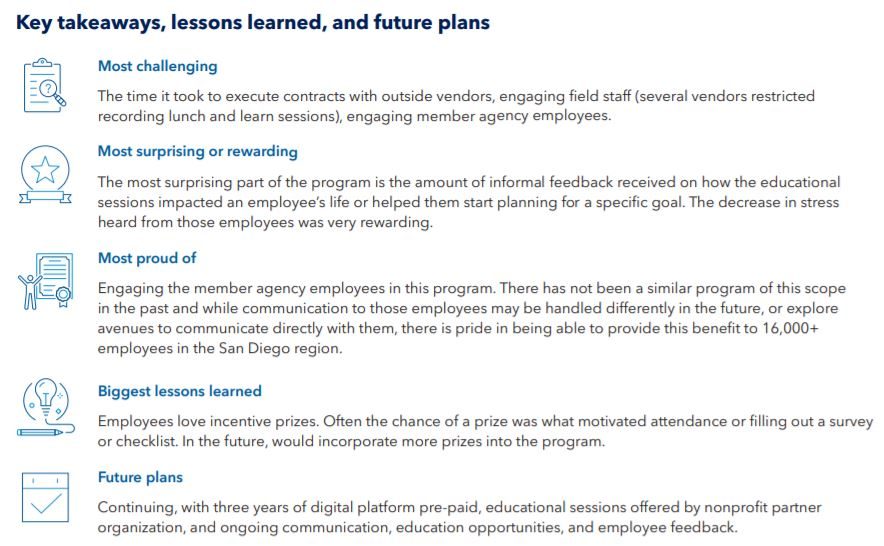
Financial Wellness Fact Sheets
The information collected from the Water Authority and other grant recipients resulted in a series of Financial Wellness Fact Sheets, providing key lessons learned and best practices for other state and local jurisdictions to adopt or customize to help employees reduce debt, save for retirement, or reach other financial goals.
Each fact sheet provides a summary of the jurisdiction’s approach, outcomes, lessons learned, and future plans. Additionally, the fact sheets provide ideas, advice, and networking opportunities for other public employers exploring financial wellness programs.
“It is encouraging to see the wide variety of innovative programs implemented under the grant program to improve the financial well-being of the public workforce,” said Rivka Liss-Levinson, PhD, MissionSquare Research Institute Senior Research Manager and lead author of the fact sheet series. “Well-designed financial wellness programs are a win-win for employees and employers, especially at a time when governments are struggling to recruit and retain workers.”
“We know financial wellness can result in more productive and engaged employees, improve morale, lower absenteeism, alleviate burnout, and reduce health care costs. We hope the Financial Wellness Fact Sheets spark ideas for leaders exploring programs for their employees. Ultimately, these programs improve employees’ ability to deliver vital public services,” said Liss-Levinson.
MissionSquare Research Institute promotes excellence in state and local government and other public service organizations to attract and retain talented employees. The organization identifies leading practices and conducts research on retirement plans, health and wellness benefits, workforce demographics and skill set needs, labor force development, and topics facing the not-for-profit industry and education sector.


